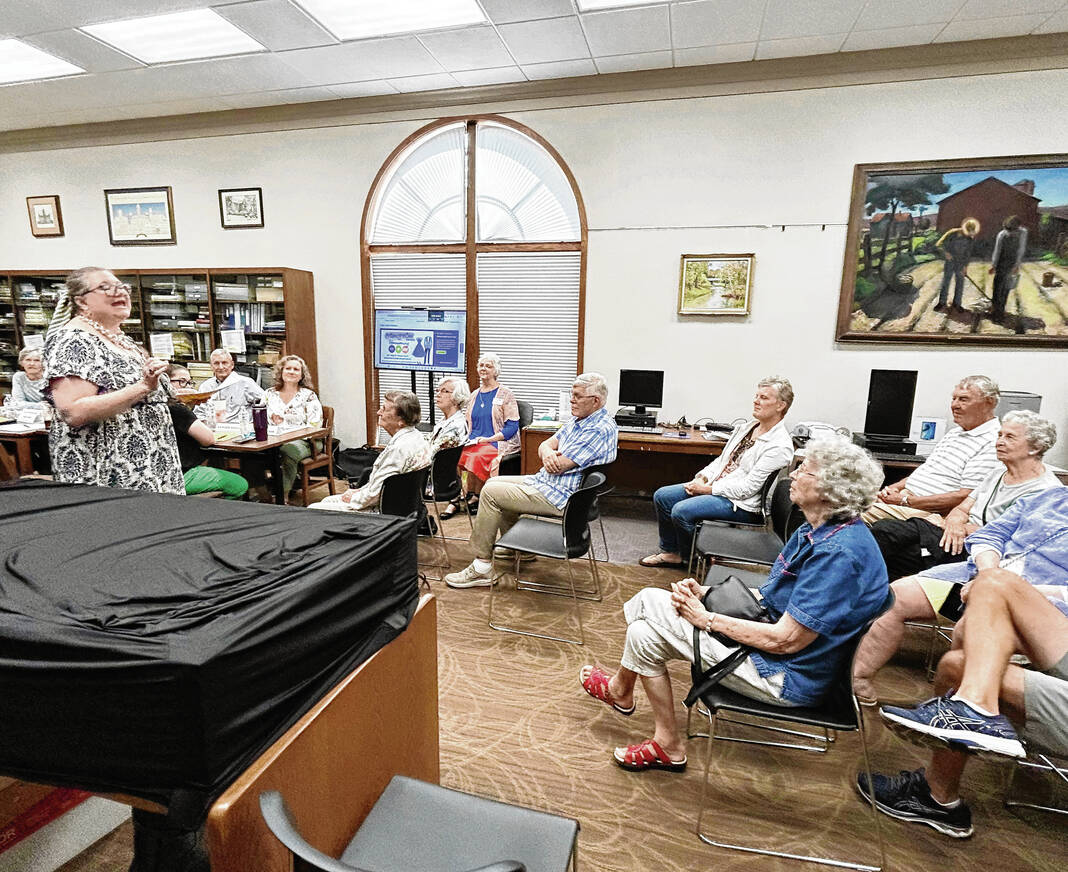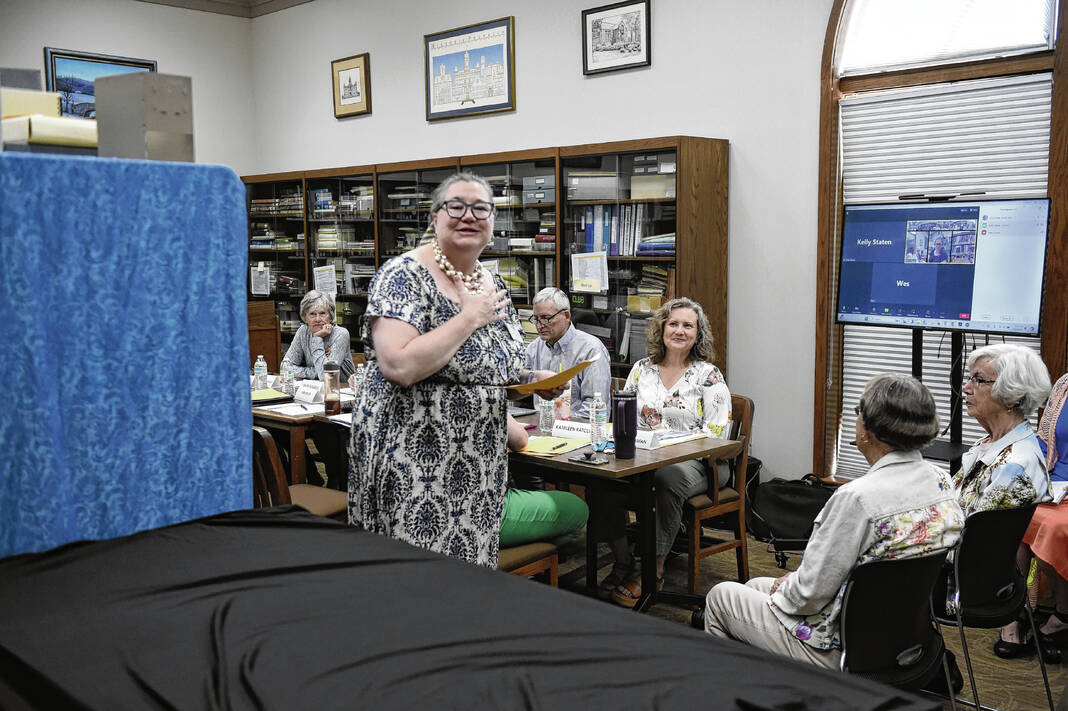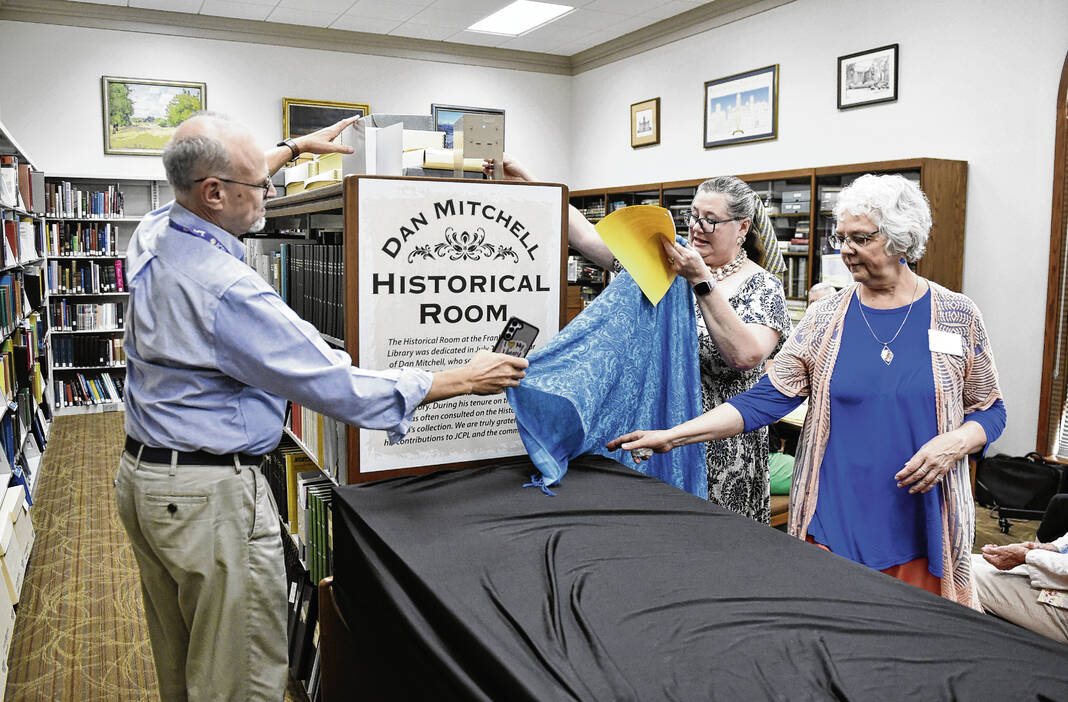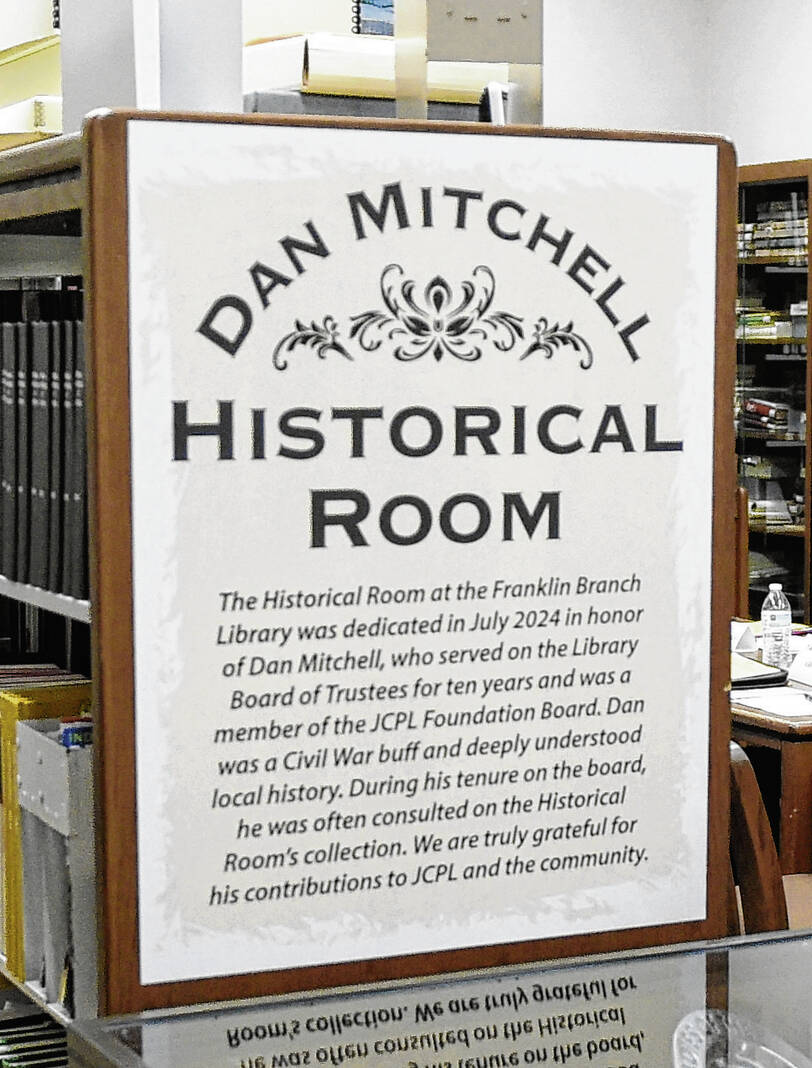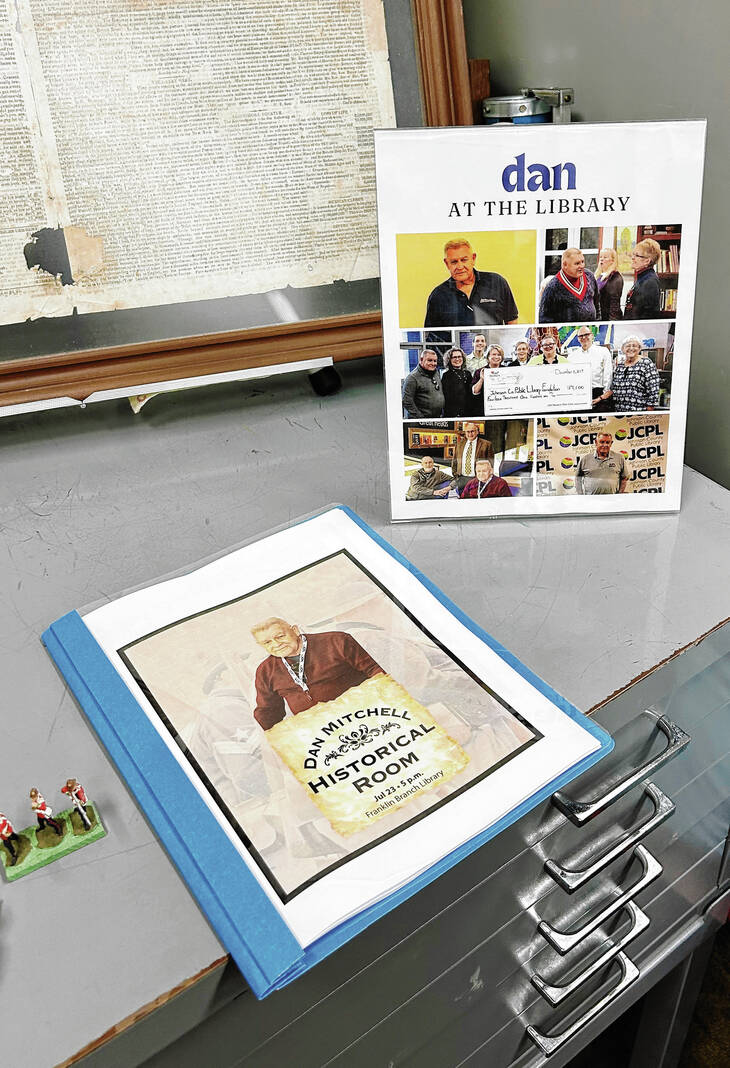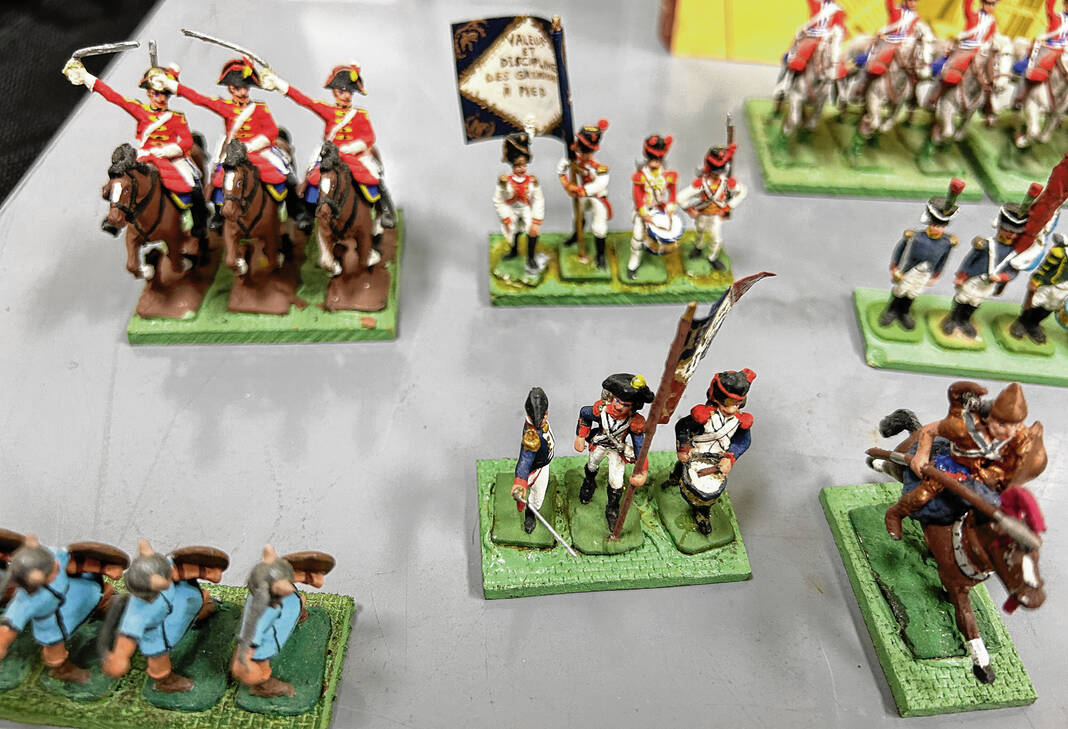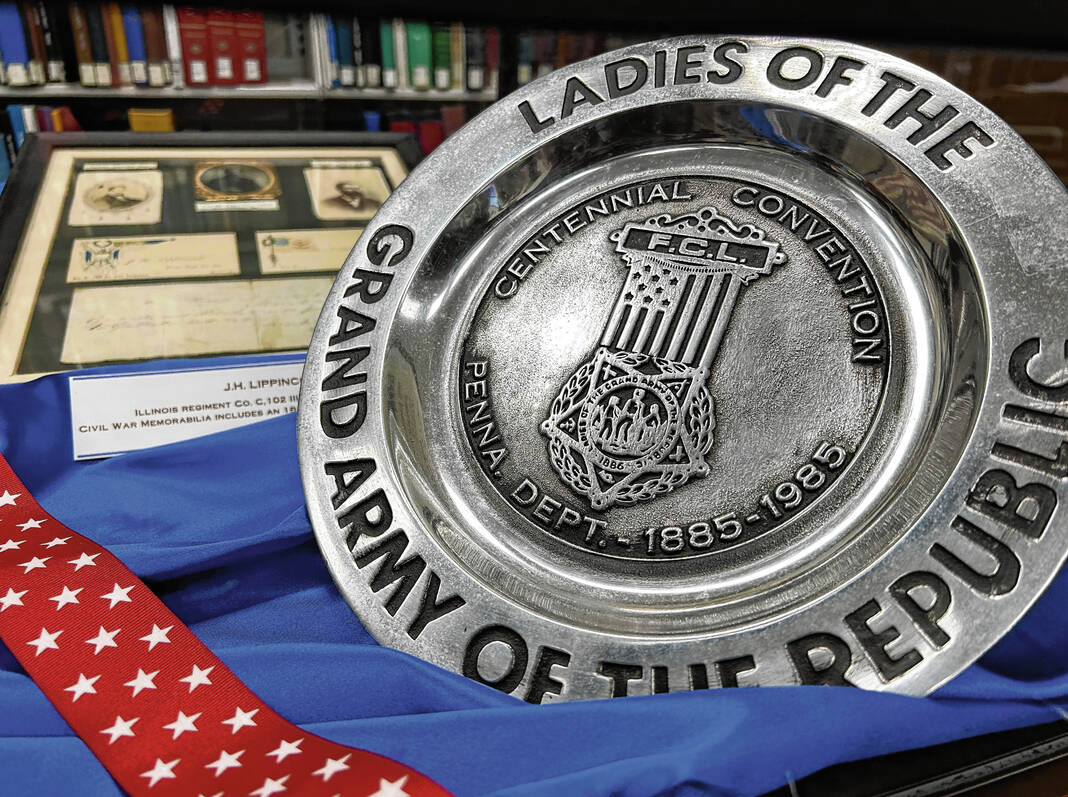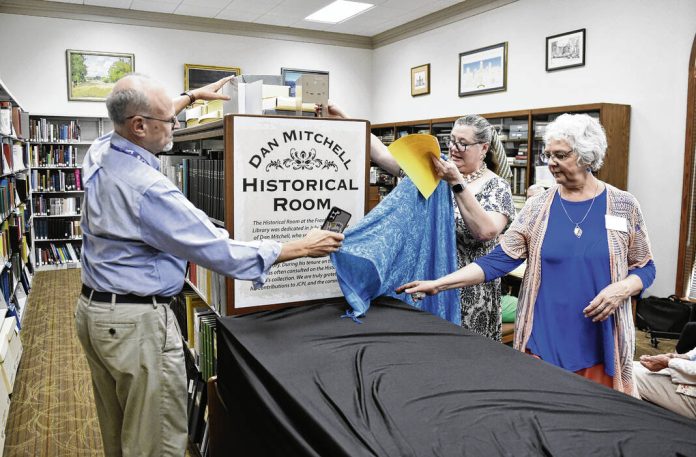
Johnson County Public Library officials unveil the new sign at the dedication of the Dan Mitchell Historical Room at the Franklin branch of the library on Tuesday. Mitchell, a member of the library’s board of trustees and history buff who died in May, was recognized for his contributions to the community. RYAN TRARES | DAILY JOURNAL
A love of history ran though everything.
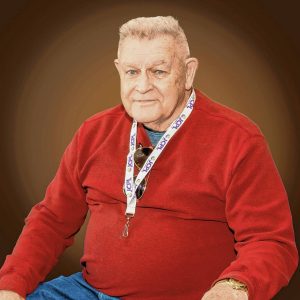
Dan Mitchell couldn’t get enough. The Franklin resident devoured anything related to the Civil War, was a member of the Civil War Indianapolis Roundtable and had a lifelong passion for the Grand Army of the Republic.
In his spare time, he molded and painted miniature figures representing soldiers from antiquity, then would gather with other like-minded aficionados to re-enact famous battles from 1770 to 1860.
Often, he could be found inside the historical reading room at the Franklin branch of the Johnson County Public Library among the collection.
“He surely did love this room and spend a lot of time in it,” said Lisa Lintner, executive director of the library.
Then was only fitting, after Mitchell’s death in May, that his legacy of learning lived on. Library officials, as well as his friends and family members, gathered Tuesday at the Franklin branch for the dedication of the new Dan Mitchell Historical Room.
Considering his love of history, and his unceasing support of the library, the dedication was the perfect way to honor Mitchell.
“I’m very pleased, because not everyone is interested in libraries and history and all of that. He was. He had a good life,” said Janet Mitchell, Dan’s wife.
Mitchell was a longtime supporter of the Johnson County Public Library. Recently, he joined the JCPL Foundation board. He had been a member of the library’s board of trustees since 2014, serving as president and treasurer two different times.
Even before that, he had advocated for the library in the community. He was a member of the Lion’s Club in the 1960s and helped the library create a bookmobile. In 1965, he was part of a group planning activities for Library Week. He was asked to join a community team in the early 2010s to write a strategic plan for the library.
“As a trustee, he was interested in how the library partnered with local schools, how we embraced technology and how well we provided programs and resources to our residents,” Lintner said.
Mitchell born in 1936, was a 1954 graduate of Franklin High School and attended Purdue University for three years. He graduated with a bachelor’s degree from Franklin College. Most in the community would know him as the owner and operator of Mitchell Insurance Agency, as well as having a real estate and investment firm.
His death on May 14 at the age of 87 shook the library community, Lintner said.
Almost immediately after his death, conversations started about doing something to honor Mitchell. With his love of the past, he deeply understood local history, and during his tenure on the board, Mitchell was often consulted on the Historical Room’s collection.
Renaming the room emerged as the best way to recognize his contributions.
“He put his hands on nearly every book in this collection to assist us,” Lintner said.
During Tuesday’s dedication, a collection of Mitchell’s miniature soldiers were laid out for people to examine. A display case of authentic memorabilia from the Civil War, including photographs, a Grand Army of the Republic flag and a silver plate from the Ladies of the Grand Army of the Republic centennial convention in 1985.
Lintner had found newspaper clippings about Mitchell and compiled them in a book, including an insurance advertisement from 1966 that read, “Dan Says, Are You Worth More Dead Than Alive?” The ad ends with the quip, “Help us make you worth more, alive or dead!”
“That was Dan — he would tell it like he saw it,” Lintner said.
The ceremony closed as library officials approached the black curtain and unveiled a placard announcing the Dan Mitchell Historical Room. The room erupted in applause.
“Today, we officially dedicate this historical room, and celebrate what it represents: the values of preservation, lifelong learning and community,” Lintner said.


